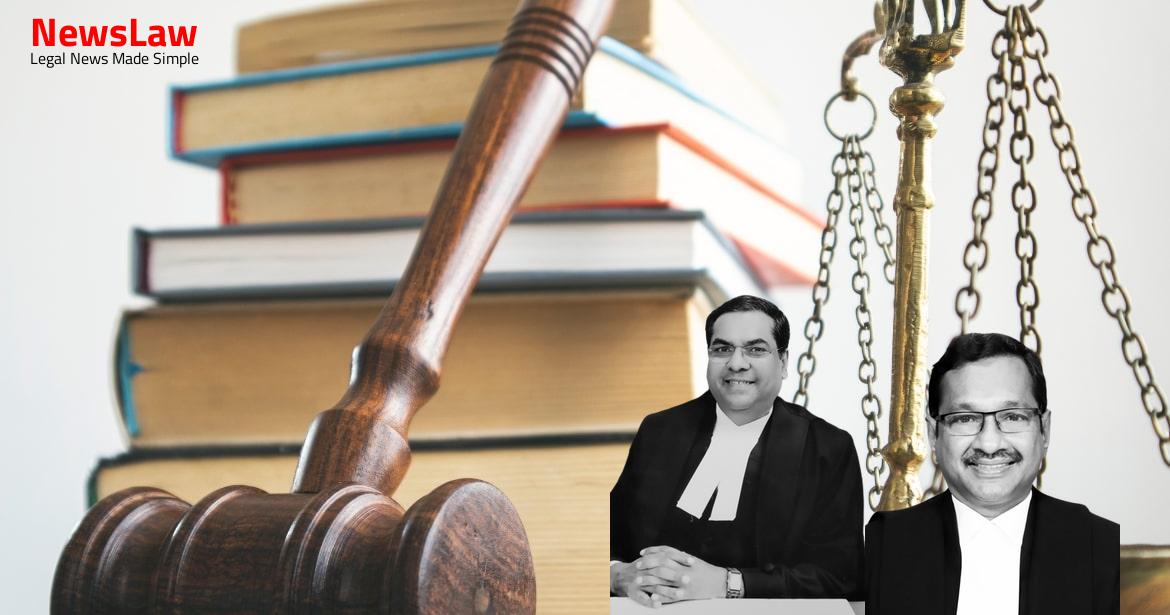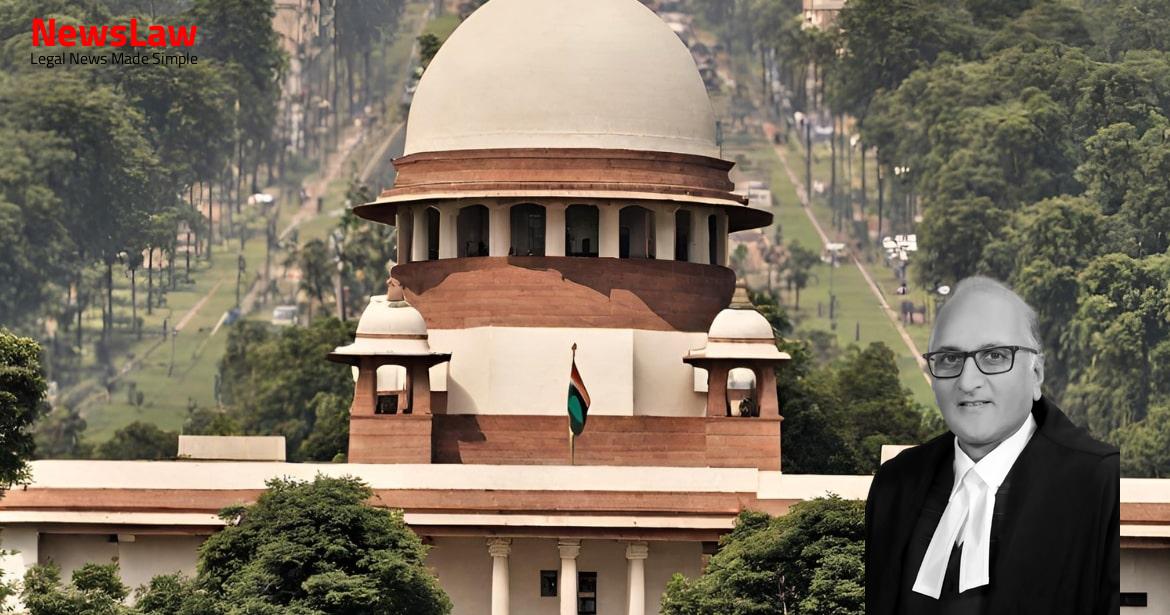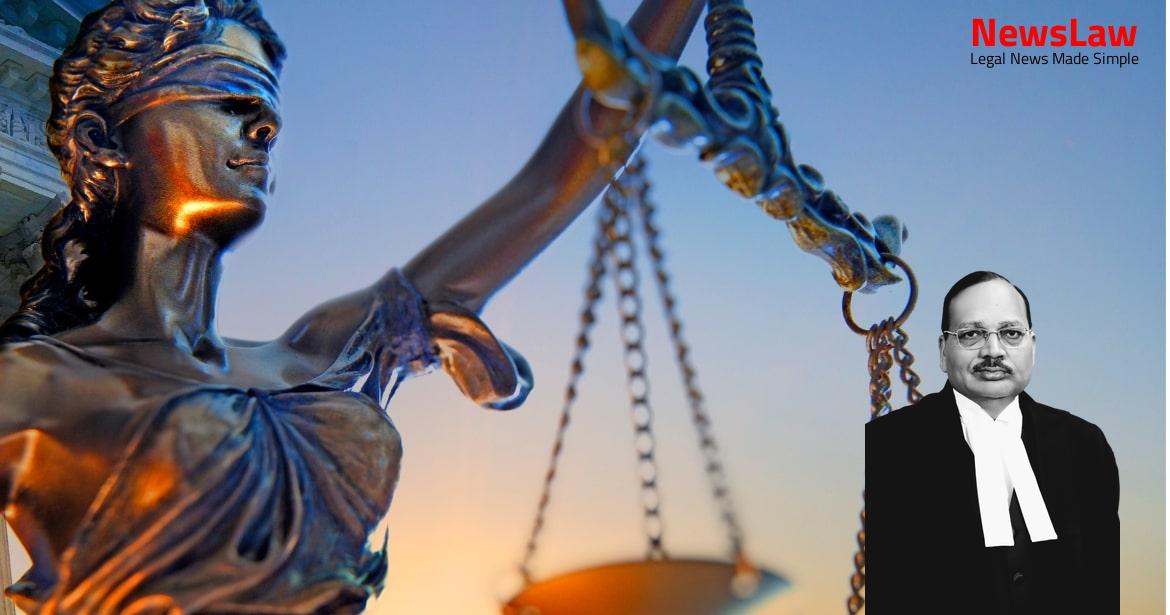The learned Single Judge dismissed the Writ Petition filed by the private Respondents, which was overturned by the Division Bench on the premise that Rule 15 of the Uttar Pradesh Gram Panchayat Adhikari Service Rules, 1978 (hereinafter referred to as “1978 Rules”), if given due interpretation, would facilitate consideration of persons waiting in the queue based upon their performance.
Also Read: https://newslaw.in/case-type/civil/inherent-jurisdiction-and-invalid-decree-a-case-summary/
An application for review was filed by the appellant inter alia stating that the relevant rule to be applied is the Uttar Pradesh Direct Recruitment to Group ‘C’ Posts (Mode and Procedure) Rules, 2015 (hereinafter referred to as “2015 Rules”). By way of abundant caution, though not necessitated, the 1978 Rules were also amended on 22.11.2016. Though, the entire process was done in tune with the 2015 Rules and in exercise of the power conferred under the Uttar Pradesh Subordinate Services Selection Commission Act, 2014 (hereinafter referred to as the “2014 Act”), the reliance was made on the 1978 Rules which has found favour with the High Court. Rule 15(4), which was left untouched by the subsequent amendment, enabled the Selection Committee to prepare the list of candidates in order of merit as disclosed by the marks obtained in the interview.
No waiting list as such has been provided expressly, though the list shall contain a larger number of names in comparison to the vacancies. Due to all these reasons, it is quite necessary to establish an independent Subordinate Services Selection Commission consisting of the Chairperson and Members similar to that of the Uttar Pradesh Public Service Commission for timely selection on certain Group ‘C’ posts. It has therefore, been decided to make a law to provide for the establishment of a Commission by the name of the Uttar Pradesh Subordinate Services Selection Commission for the selection on certain Group ‘C’ posts in the State…” 12.
Since the two sets of rules are completely inconsistent, in light of the fact that the authority who is to conduct the recruitment process is different in the two rules, so also the process of recruitment, as such, there is no possibility of any reading of the two sets of rules. Even otherwise, in light of the 1999 GO, the Respondents or the impleadment applicants will not be entitled to appointment. The 1978 Rules deal with a specified post, and therefore, the 2015 Rules, despite being a subsequent one will have to yield to it, the former being the special law governing the field. It is not a case of mere operation of the waiting list to fill up the vacancies created due to the failure of the selected candidate to join. State of Kerala (2010) 4 SCC 498, V. High Court of Gujarat (2020) 4 SCC 702. On behalf of the appellants, it was contended that after the revised Notification dated 12-10-2014, the private respondents participated in the interview without protest and only after the result was announced and finding that they were not selected, the private respondents chose to challenge the revised Notification dated 12-10- 2014 and the private respondents are estopped from challenging the selection process. Observing that the result of the interview cannot be challenged by a candidate who has participated in the interview and has taken the chance to get selected at the said interview and ultimately, finds himself to be unsuccessful, in Madan Lal v.
High Court of Kerala [(2006) 6 SCC 395 : 2006 SCC (L&S) 1345], it was held as under : (SCC p. Vinodh Kumar [(2007) 8 SCC 100 : (2007) 2 SCC (L&S) 792], it was held as under : (SCC p. It is also a settled position that the unsuccessful candidates cannot turn back and assail the selection process. This position was reiterated by this Court in its latest judgment in Union of India v. Such a selective adoption is not permissible under law, as no party can be allowed to approbate or reprobate, as held by this Court in Union of India v.
This principle has to be applied with more vigour as a common law principle, if such a party actually enjoys the one part fully and on near completion of the said enjoyment, thereafter questions the other part.
Yashpal Dhir [(1992) 4 SCC 683] this Court has observed as under : ( R.N. Gosain case [(1992) 4 SCC 683], SCC pp.
It is evident that the doctrine of election is based on the rule of estoppel, the principle that one cannot approbate and reprobate is inherent in it.
The doctrine of estoppel by election is one among the species of estoppel in pais (or equitable estoppel), which is a rule of equity. The same is the position under the 2015 Rules by which the Commission is required to send the merit list alone to the appointing authority which it actually did and in case of non-joining, the vacancies are carried forward to the next process of selection, as has been rightly done by the authority in the present case. Now we shall come to the question of repugnancy between the two Rules, namely, the 1978 Rules, being a special Rule, and the general Rule introduced in the year 2015. In other words, a prior special law would yield to a later general law, if either of the two following conditions is satisfied: ( i ) The two are inconsistent with each other.
See in this connection, Maxwell on the Interpretation of Statutes, Twelfth Edition, pages 196-198.” Merely because the Appellant sought to amend the 1978 Rules subsequently in 2016, it cannot be presumed that the 1978 Rules particularly with respect to Rule 15 continue to exist in the statute book, considering the fact that the 2016 amendment was only clarificatory in nature. It would only mean that selection of an individual to a post, which cannot be interpreted to mean a particular category of post or a single cadre post, as contended by the counsel for the Respondents.
The learned counsel appearing for the respondents made a specific reference to the decision rendered in the case of Rajiv Kumar Srivastava (supra) to press home the contention that, when a post is not filled due to non-joining of a candidate, another one waiting in the wings merits consideration, as a vested right inures in his benefit. As there was no requirement of preparation of a waiting list, the appellant claiming to be the next in the merit cannot claim any appointment as his name neither figured in the list of the selected candidates nor in any waiting list as there was no provision at all for preparation of the waiting list.
Also Read: https://newslaw.in/case-type/criminal/conviction-upheld-for-murder-and-concealment-of-body/
In the said decision, it is specifically observed and held that even in case candidates selected for appointment have not joined, in the absence of any statutory rules to the contrary, the employer is not bound to offer the unfilled vacancy to the candidates next below the said candidates in the merit list. The aforesaid decision of this Court has been subsequently followed by the Andhra Pradesh High Court in the case of Samiula Shareef and Ors. On a perusal of the judgment rendered by the High Court, as found earlier, the impugned decisions are made without considering the appropriate provisions despite an endeavour being made drawing its attention to the same.
(M.M.
Case Title: THE STATE OF UTTAR PRADESH Vs. KARUNESH KUMAR (2022 INSC 1274)
Case Number: C.A. No.-008822-008823 / 2022



